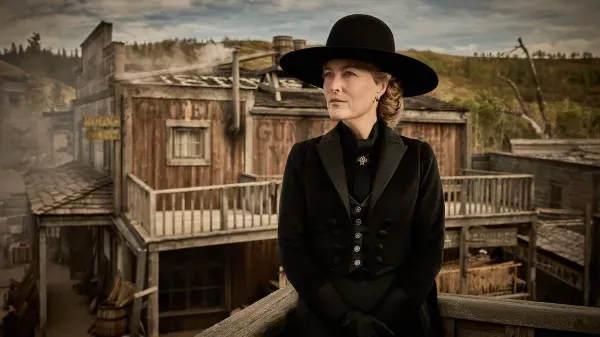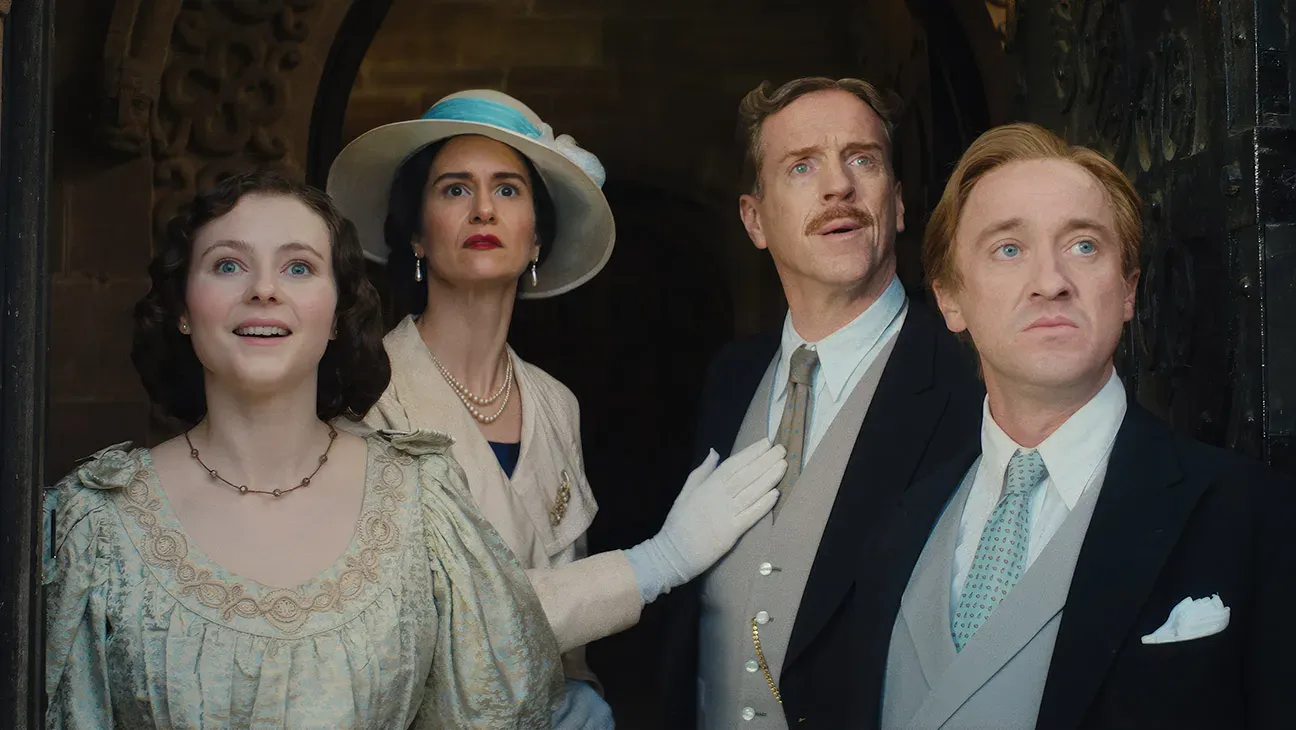
Accidental Texan (2024) - Movie Review
- Mar 11, 2024
While a poor opening might not doom a film entirely, nailing the finale is crucial to leave audiences satisfied. However, "Accidental Texan" falters right from the start with an opening so unconvincing it undermines the entire movie. This mishap raises doubts about director Mark Lambert Bristol's grasp on filmmaking, let alone his commentary on life.
The film introduces us to Erwin Vandeveer (played by Rudy Pankow), an actor whose career takes a nosedive due to a bizarre on-set accident involving a cellphone and a series of explosions. Post mishap, Erwin finds himself in Buffalo Gap, Texas, a town that epitomizes cinematic rural charm, where he meets Faye (Carrie-Ann Moss), a diner waitress who seems out of sync with her role, reflecting no fault of Moss's own talents.
Erwin's sophisticated background clashes with the town's rustic ethos, personified by Merle Luskey (Thomas Haden Church), an oilman embodying a caricatured conservative ideal. The plot thickens as Erwin's academic prowess becomes crucial to solving Merle's banking issues, despite the implausibility of portraying an oil magnate as an underdog.
Throughout the film, we see predictable character arcs and overdone tropes. Erwin learns about the value of hard work and loyalty, while the film indulges in a heavy dose of sentimentality and clichés, never fully landing its attempts at humor or emotion.

The film's technical aspects, such as editing and scriptwriting, further detract from its appeal. Spatial and temporal inconsistencies, alongside a script that underestimates the audience's intelligence, contribute to a disjointed viewing experience. These elements signal a lack of finesse in storytelling, making the film feel more like a haphazard attempt to resonate with viewers through blatant cultural references and oversimplified narratives.
"Accidental Texan" seems to oscillate between earnestness and cynicism, aiming to connect with a specific demographic through exaggerated rural iconography and a storyline that borders on pandering. Despite its aspirations, the film's execution falls short, raising questions about its intent and the sincerity of its portrayal of rural American life.
As it hits theaters, predominantly in urban areas, one wonders if the film's release is an ironic twist or a calculated move to capitalize on a certain market segment. Regardless, "Accidental Texan" serves as a reminder of the delicate balance between authenticity and stereotype, earnest storytelling, and simplistic pandering in cinema.







